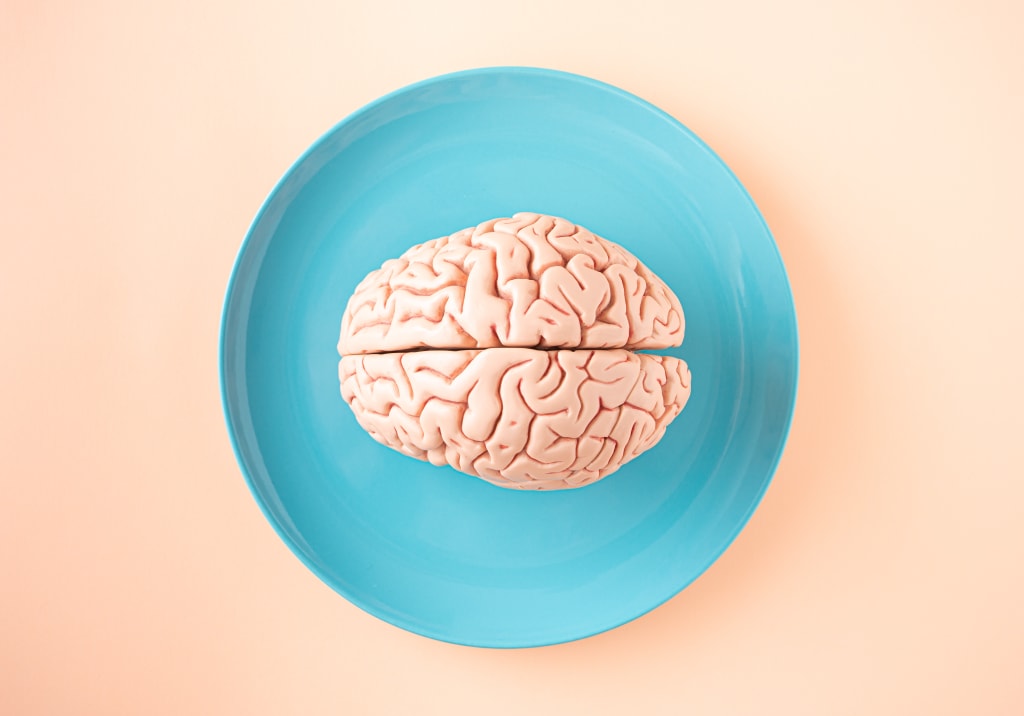Mindful Eating
Foods That Can Negatively Impact Brain Health

Mindful Eating: Foods That Can Negatively Impact Brain Health
Introduction:
We often hear the phrase, "You are what you eat," and when it comes to our brain health, this saying holds true. Our dietary choices play a significant role in shaping our overall well-being, including the health of our brain. While certain foods nourish and support brain function, others can have a detrimental impact. In this article, we will explore foods that can potentially cause damage to the brain and discuss the importance of mindful eating for maintaining optimal cognitive health.
Processed Foods and Trans Fats:
Processed foods, such as fast food meals, packaged snacks, and sugary treats, are often high in trans fats. Trans fats have been linked to an increased risk of cognitive decline, memory impairment, and inflammation in the brain. These unhealthy fats can interfere with proper brain cell communication and contribute to oxidative stress, negatively affecting brain function over time.
High-Sugar Diets:
Excessive consumption of sugar has been associated with various health issues, including detrimental effects on brain health. Diets high in sugar can lead to inflammation in the brain, impaired memory and learning, and increased risk of neurodegenerative disorders like Alzheimer's disease. It is crucial to limit the intake of sugary foods and beverages, opting for healthier alternatives like fruits and naturally sweetened options.
Artificial Sweeteners:
While artificial sweeteners are often used as low-calorie substitutes for sugar, studies suggest that they may have negative effects on the brain. Some artificial sweeteners, such as aspartame and sucralose, have been associated with neurological symptoms like headaches, migraines, and cognitive impairment. It is advisable to moderate the consumption of artificial sweeteners and choose natural sweeteners like stevia or honey when needed.
High-Sodium Foods:
A diet high in sodium can contribute to high blood pressure, which is a risk factor for stroke and other cardiovascular conditions. The brain relies on a healthy blood supply to function optimally, and prolonged high blood pressure can lead to reduced blood flow and damage to brain cells. It is important to be mindful of sodium intake and opt for low-sodium alternatives and fresh, whole foods.
Processed Meats:
Processed meats, such as bacon, sausages, and deli meats, often contain nitrates and nitrites as preservatives. These compounds have been linked to cognitive decline and an increased risk of neurodegenerative diseases. It is advisable to limit the consumption of processed meats and choose lean protein sources like poultry, fish, and legumes instead.
Alcohol and Excessive Caffeine:
Excessive alcohol consumption can have damaging effects on the brain, leading to memory problems, impaired cognitive function, and an increased risk of neurological disorders. Similarly, excessive caffeine intake can disrupt sleep patterns, contribute to anxiety and irritability, and negatively impact overall brain health. Moderation is key when consuming alcohol and caffeine, and it is important to stay hydrated and be mindful of individual tolerance levels.
Artificial Food Additives and Preservatives:
Artificial food additives and preservatives, such as monosodium glutamate (MSG) and certain food colorings, have been associated with adverse neurological effects in some individuals. Sensitivity to these additives may manifest as headaches, migraines, or other cognitive symptoms. Being mindful of food labels and opting for whole, unprocessed foods can help minimize exposure to these additives.
Conclusion:
Maintaining a healthy diet is vital for overall well-being, including the health of our brain. While the occasional indulgence is part of a balanced lifestyle, it is essential to be mindful of the foods that can potentially cause damage to the brain. By prioritizing whole, unprocessed foods, limiting the consumption of sugary and processed items
About the Creator
Dinakaran S
Hi! Everyone
I Write on Random Topics i love :)






Comments
There are no comments for this story
Be the first to respond and start the conversation.